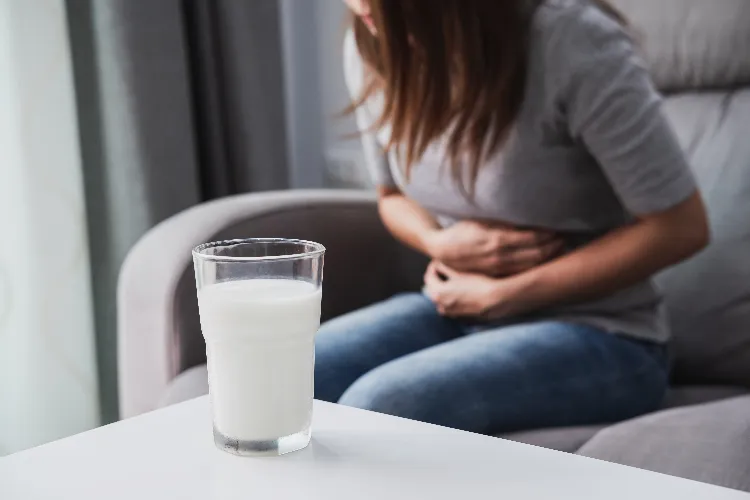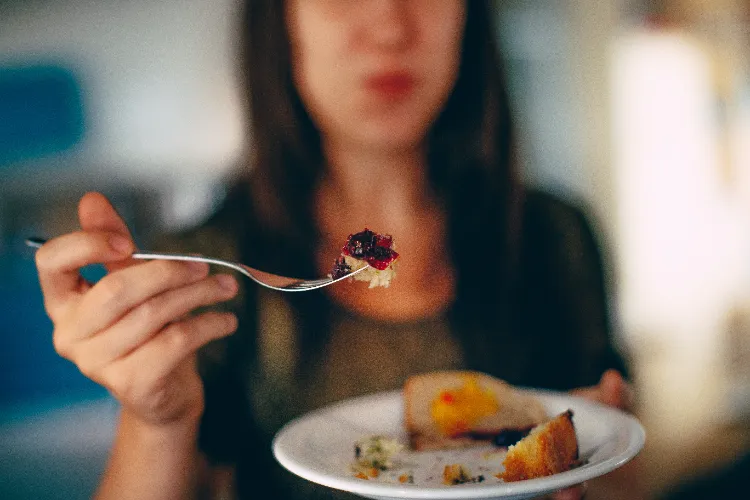There are several reasons why a person may feel short of breath after eating, but don’t worry. There is nothing serious to fear. But still, it can be uncomfortable or painful. So, to find out how to treat it, first of all you have to find out the reason for the shortness of breath after the meal. This article describes some of these causes and provides information on treatments and, of course, when to contact a doctor.
What can cause shortness of breath after eating?
If you feel tightness in your chest or feel like you are choking, it may be dyspnea, commonly known as shortness of breath. Don’t worry, it’s not that bad unless it starts to happen often. This unpleasant situation can be caused by a food allergy, gastroesophageal reflux disease (GERD), hiatal hernia or inhalation of food particles. Here are the symptoms and how to treat them.
Shortness of breath after eating caused by food allergy

Unfortunately, food allergies are not uncommon. Their effect can occur immediately after eating or a few hours after. Shortness of breath is one of the symptoms. Others include hives and swelling of the lips and airways, but this only occurs when the allergic reaction is severe.
The most common food allergies are eggs, shellfish, dairy products, peanuts and tree nuts. Unfortunately, there is no treatment yet that can help you develop resistance. Once you’ve tested to determine if you have a food allergy, you simply need to avoid this product.
Gastro-œsophagien Reflux (RGO)

Gastroesophageal reflux disease (GERD) is also called acid reflux, due to stomach acid and food being regurgitated from the stomach into the esophagus. This happens when the esophagus does not close properly. It can happen accidentally, but if it happens more than twice a week, it’s GERD. The main symptom is shortness of breath, but you may also experience chest tightness or a burning sensation in the lower chest or middle of the abdomen. Hoarseness, difficulty swallowing and a dry cough are also possible.
There are various home remedies that can help you with this problem. Eating a ripe banana or chewing sugar-free gum are just part of it. You can have a cup of chamomile tea. But in addition to these remedies, you need to change your lifestyle. Avoid late night eating, smoking, eating fried and fatty foods, tomatoes and try to regulate your weight if necessary.
Shortness of breath after eating caused by hiatal hernia

A hiatal hernia is a condition in which part of the stomach rises above the diaphragm and thus crushes the lungs. Symptoms are similar to those of GERD and therefore may contribute to shortness of breath after eating. Some of the possible causes of hiatal hernia are obesity and smoking. Again, symptom relief can be achieved by changing your lifestyle. Try a low carb diet that includes more vegetables and fruits. Avoid red meat, alcohol and cigarettes of course. Resting and sitting upright can also help, but it’s a temporary fix and not always effective.
So, if you experience one or more of these symptoms, contact a doctor who can better decide whether you need treatment or not.
Inhalation of food particles

When you eat, it is possible to inhale small particles of food or liquid. This is called pulmonary aspiration and it can cause you temporary shortness of breath. Other symptoms may include chest pain, wheezing, difficulty swallowing, unpleasant breath odor, fever, excessive sweating, or fatigue.
If your lungs are healthy, you will cough up these particles. Otherwise, the particles can cause infection inside the air sacs of one or both lungs. You should then contact a doctor, because you are at risk of developing aspiration pneumonia. Treatment usually includes antibiotics.
–

